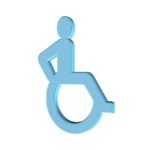
Image by Gerd Altmann from Pixabay
By Emma Miller
Self-employment and entrepreneurship are two career possibilities that are growing in popularity for people with disabilities. Through self-employment, people with disabilities can tailor their work to fit their needs, leading to a more flexible and ultimately fulfilling career. Thanks to these economic opportunities, people with disabilities can advance toward monetary independence and improved levels of life satisfaction.
You might be unsure about where to start if you want to open a franchise or start a business from home. The good news is that disabled people today have more business options than ever before and finding one can be simpler than you think. Here are some small business opportunities and advice for people with disabilities to help you get started.
Launching your own business
It can be exciting to launch your own business, but there’s a lot of work and responsibility involved. The needs and difficulties of beginning and operating your own business should be discussed with business specialists if you’re completely new to the field of entrepreneurship. Fortunately, there are several tools at your disposal to assist with organizing, filing for, and launching your own business. Depending on the type of disability, working from home is frequently a desirable option. Flexibility and a sizable paycheck are two benefits of owning your own business. Depending on the kind of disability, working from home can be an appealing possibility. Owning your own business can give you freedom and a good income. Additionally, it gives you a chance to engage in fulfilling jobs.
Getting support
The fact that you probably have access to a lot of support is something else to keep in mind if you want to achieve more independence and get help in finding employment and in your other goals. The secret to cultivating independence is to enlist more people in your support. Since family carers typically have a strong sense of commitment to their role as caregivers, it might be difficult to include other family members, friends, or even professional support staff. In fact, if you try to accomplish everything on your own, you run the danger of preventing fully supported independent living from developing and progressing.
Building a trustworthy support network can take some time since you need to look for people who are ready and eager to assist you on this path and who you can trust. To assist you in achieving that goal, trained caregivers might be of help.
Looking for special financing
Disability-specific loans and grants may be available to people with disabilities who want to start their own businesses. Research the programs that, depending on the state where you live, you might be a suitable fit for. But be sure to read the small print because certain lending programs are only for established firms. If you’re launching a new company, you might need to look for a specific small business loan or grant program that accepts both start-ups and established businesses. Also, to learn precisely what happens following a job injury, pay attention to how workers’ comp disability payments are calculated.
Resources for business education and training
The most effective sources for local skill training are state vocational development offices. Someone could acquire the business start-up abilities through the same skill development that appeals to employers. Equal educational opportunities for people with disabilities are mandated by federal law. To assure compliance, almost all colleges and universities have an office of disability services. People with disabilities may be eligible for particular financial aid programs and scholarships, some of which may support vocational education. For instance, the Ticket to Work program assists people with disabilities in increasing their earning potential and achieving financial independence.
Forming a business plan
It’s time to start preparing once you’ve chosen your business idea. Making a business strategy is an excellent place to start. Such a paper not only can act as your goal statement and plan, but it can also assist you in obtaining grants or other forms of financial aid. Remember that before deciding on a fund, lenders may need a business plan. Goals, estimates, and start-up expenditures should all be included in your plan. Forecasts for marketing, growth, and your clientele should be included, as well as a review of the competition.
The sky is the limit when it comes to what you can accomplish by starting your own business, even if you have a certain disability that may have made it difficult for you to be accepted in previous businesses. Whatever path you choose, your prospects of success now are better than ever.
________
Emma Miller is a Sydney-based writer with a degree in marketing. Interested in digital marketing, social media, start-ups, and the latest trends. She’s a contributor at BizzMark Blog.
